- Home
- Douglas Clegg
Coming of Age: Three Novellas (Dark Suspense, Gothic Thriller, Supernatural Horror) Page 2
Coming of Age: Three Novellas (Dark Suspense, Gothic Thriller, Supernatural Horror) Read online
Page 2
All right, do you know how breathing is voluntary? I've heard that people with dementia sometimes end up forgetting how to breathe. That's a terrible way to die, although one would suppose that any method of dying would be awful. Well, breathing is the essential component of accomplishing anything.
I observed this early—I was on the school bus, and I noticed a little girl next to me who was terrified of an upcoming test we were about to take. She would, in fact, stop breathing for seconds at a time. I began to count her breaths, and I saw that for every four I took, she took one. I suggested to her that she try just concentrating on her breathing. After a bit of persuasion, she did. It didn't seem to work.
I withdrew my father's watch—the one I'd stolen (yes, I stole things regularly around the house. I have reasons, none of which you want to know.) I had learned a bit about hypnosis, so I asked her to stare long and hard at the brass of the watch as the sunlight reflected on it. She asked me if I'd be putting her under. I told her no. This was, after all, just suggestion, nothing more. I would suggest something to her and would hope that her mind would accept it. Of course, I was a child. I didn't say it that way. I said it in some little boy way. But eventually, staring at the watch so much that her eyes teared up, I began to help modulate her breathing. By the time we reached school, she wasn't half upset anymore about the test.
I began asking the other boys—the older ones who were good at softball and running—what their secrets were. To get their secrets, I entertained them with my modest ventriloquism skills—I could do bird calls and the sounds of crickets and even get brief sentences out without moving my lips.
Boys like entertainment—so they opened up and told me about athletics and sports. They all said screwy things, but what I noticed were two solid answers: breathing and imagination.
They made sure that they breathed through everything. They also imagined that they would win. This was a huge revelation to me, since I had never felt that I could win anything. I realized that these other boys were winners in athletics because they in fact believed they were—whether from coaches, friends, family or whomever—and because they did not stop breathing. They used their breathing—without even knowing it—to help keep their bodies working.
All right, that sounds simplistic. I believe that the simplest things can lead to the strongest results.
So, I began working on breathing.
This was not merely inhaling and exhaling, but swimming at the beach in the icy spring and holding my breath under water. After all, if I were going to be lord of my own breath, I needed to master everything about it, didn't I? I wasn't sure that I'd ever be a great breath-holder, because I never seemed able to go much beyond a minute. I was holding on too much to my fear of dying.
This is one of the first lessons about breathing—if you have breath within your lungs, you will not die. Death comes once there is no more breath.
Again, simple.
Again, true.
“Owen,” my mother said, pinning the laundry up outside the cottage that the Montgomery's housed us in. “What in god's name are you doing?”
I had come up after logging in a minute-and-a-half beneath the water, right at the rocky ledge. I had just leaned over and thrust my face underwater. I was eleven at the time. I tried to explain to her the principle behind my experiment, but she did not seem to understand.
However, within a few short months, I had become best friends to the captain of the swim team in 7th grade, and by fall, I was running cross country. I would never be the best—this was not my goal after all. I would be a winner. In fact, I knew I would close in on this with each sport or endeavor I tried—the other kids were lazy. Life and their families made them that way. I did not intend to let a day go which I could not claim was my own. I was going to own life in a way that neither of my parents ever had. Academics slipped in my middle school years—but not enough for anyone to notice. I read studiously, and never for enjoyment, but to understand systems of thought that the world was trying to push at us.
I learned quickly that an A+ in school sometimes meant a D- in life, and that in fact equal effort had to be made to excel in both spheres.
Breathing helped. When I felt overwhelmed by it all, I practiced my breathing again.
Even in December, when the island was desolate and the water was enough to drown, I would leap into the sea and stay beneath the water for as long as I could; I would, if possible, use the Montgomery's indoor swimming pool for my morning workout which began at six a.m.
8
That was the wonderful thing about the Montgomery's place: they were usually gone all winter unless Mr. And Mrs. Montgomery were fighting, or Mr. Montgomery had gone off with one of his mistresses and Mrs. M was so angry she came to the island for a blisteringly cold February. I used to see Mrs. M in those cold Februarys, and I ran errands in town for her because she spent too much time staring at the walls or sitting along the indoor pool while I did laps.
She enjoyed letting me swim there, and she sometimes even got in and did laps, too.
Once, when I was twelve, Mrs. M told me, “You're turning into quite the handsome boy, Owen Crites.”
She was in good shape for a woman of forty, and there were times when I was with her that she reminded me so much of Jenna it was almost like having Jenna there with me.
When I watched her back, as she got out of the pool, bathing cap on, her narrow waist, the way the water beaded upon her skin—it was like seeing Jenna for a moment. This made me happy. Jenna meant a lot to me.
But the pool—dare I describe it now, how I remember it? It was vast. It was Olympic size. I could do real laps there as opposed to laps at the beach which ended with a summer lifeguard blowing a whistle for me to come to shore before I'd gone out twenty yards. It was off the southern wing of their estate, and had glass surround it, so that it was as if you were swimming outside, as if on the bluffs over the Sound, you owned the world as you went back and forth, breathing, carefully breathing so as not to wear out too fast.
Because, during those winters when the M's stayed down in Manhattan, my father and mother and I had the run of the house, I could swim naked in the pool, and rise to see the reflection of my body in the long mirrors that were in the small lockerroom off the pool. By my sophomore year in high school, I had created—and mastered—a beautiful, strong body, and what average looks I had were masked by health and physical near-perfection. I didn't admire this because I believed in beauty.
Beauty is for the lazy.
I admired it because I knew the world admired it, and I wanted to own the world.
Wrestling was my winter sport at school, and I did not excel at it, but I held my own. The girls loved me—and the boys, too. I never got too close to them, because I had to spend all my concentration on creating who I was. But the girls all cheered for me in the sweaty matches as I brought some great bull of a boy from a competing school down to the red mat. Because the psychological aspect to sports can't be emphasized enough, I would—with each match—create some threat to my opponent. Something I could whisper in his ear. This took no small planning, as it meant I had to do research on those I wrestled, so I would know just what button to push to take away their psychological edge.
Dagon helped me; my god took me to books and ideas and notions, if you will, that showed me just what other boys would be most hurt by. Usually, it involved their sense of sexuality.
After all, even I knew that showering with other boys all day, wearing jockstraps, cracking jokes about everything from dicks to pussies, was a veil across homoeroticism among adolescents.
And who but wrestlers were closest to puncturing that veil?
So, I would whisper to my opponent something about him, something perhaps his closest friend had told me—his closest friend, drunk, being taken out to a parking lot—his closest friend who, with six beers in him, would finally admit to something that my opponent would be happiest to hide for a thousand years. Sometimes, it was less int
eresting.
My threat might be, “I know your little sister, Trey. I know all about her leg. I would hate for something to happen to her. I would hate for someone to do something to a little girl so sweet.”
You may judge me for this if you like.
It was a competitive edge, and this is what we, in athletics, were taught: to find our edge. Skill alone never wins. I wish it did, but lazy people think that way. Faith is necessary, too. I had found mine. It had grown within me.
Now, this began rumors about me, but I had built up a loyal following of other boys and girls in school. I became head of the pep squad for the football team—team sports were never my thing, but I knew that I had to somehow attach myself to them. So, when kids from other schools began talking about me saying “crazy, psycho” things, I had friends who were willing to lay down and die for me rather than accept those lies.
I really liked the kids I went to high school with; I liked the teachers. It was easy for me to like them. I think even being poor helped—teachers saw me as an underdog rising. I would tutor children in the local elementary school some afternoons; I took the coach's daughter to the junior prom, just because I was a nice guy and I felt bad that she wasn't pretty enough to get asked by any of the other guys. I was well-liked, and sometimes, that carries you.
But I haven't mentioned much about Jenna yet, have I? In all this talk of I, she has not yet entered—not in the way she should've. She was not at my school. She was not within my sphere. She was outer, she was beyond beyond. How could I take her to the prom when she only arrived at Outerbridge Island in the summers?
I would count the days until Memorial Day weekend, when the Outerbridge Majesty would arrive in Quonnoquet Haven, heavy with tourists and summer people, and there, on the highest deck, I'd see her with my binos and I would lay back in the muddy grass and look up at the paling sky and think: please remember what we promised. Remember everything and don't leave anything out. Remember why I came to you and why you let me and why it would make everything be the way it was supposed to, and why you're the reason for my every breath.
That's what had happened when I was twelve and dedicated my soul to the god of dark places. By the time I was seventeen, I was a dedicated servant to the one I worshipped. And the only thing I asked of this divinity was:
Give me Jenna.
9
I'll tell you now, that it's safe, what really happened the summer that I discovered purity—genuine purity—in the shit of human existence.
I can see myself as I was then, handsome, young, even pretty in a way with my thick hair falling to either side of my face, my blue eyes sharp, yes, but expectant. My shirt is an Izod, a preppie affectation—my mother never wanted me to look like the other islanders, she wanted something better for me, as did I. Khakis, no socks, Topsiders or sandals—my face burning from the beginnings of summer sun, my heart racing.
It's no longer me as I am, it's that boy, that boy who is almost eighteen, a man at this point, a man who has nearly won in life.
I, he, you, it doesn't matter what I call that boy-man, he just is, I can feel his breath, I can smell the Old Spice on him, I can practically see the cap on his front tooth that cost his father a pretty penny after he fell and chipped it in sixth grade while he was running—I can practically see the fog lift between this day and that one.
He watches for her.
Chapter Two
Memorial Day, Restless Nights, and an Open Window
1
Let me take you there. Fly like a bird over the crotch of New England—that place where
Rhode Island clutches at its small corner between Massachusetts and Connecticut, and out to the Sound, across the scattering of islands and islets and outlands until you see the One Man Rocks, the places where misanthropists going by the name of New Englanders lived two to three per islet—and then, beyond the beyond, as my mother would say, thar she blows—Outerbridge, Outerbridge, Outerbridge.
The name conjures up older names, and for me—or for him, for the me who was, Owen Crites, the Dutch fighting the Indians, the pirates burying treasure beneath the land, and the people who built the walls. It even conjures all the names it must have had before, when the gods themselves had granted it some secret name.
If Owen had known the secret name, he might have had power over it, but as it was, the island was master, and all who occupied its ground, servants.
The island's history began eons ago when some glacial giant swept the rocks and earth into the Atlantic and the world grew up around it. The Pequot and Narragansett Indians held it against the Dutch for as long as they could, and then the Brits wrested it for themselves.
The island never provided much in the way of existence for any of its inhabitants; all that's left of the early English settlers were walls made of stone and foundations of cottages that speckle the northern end of Outerbridge (originally called a Dutch name that had sounded to the English like Outerbridge although there was a movement afoot among the summer residents to restore the old Pequot name for the place.)
The largest beach, called the Serpentine by the British for its snaky shape, runs the western length. A Victorian Wedding Cake House called the Mohegan, converted in recent years to a twenty room hotel, sits perched on the main bluff overlooking the most public part of the Serpentine. On either sides are the summer homes—the large and the ordinary, with the woods all mixed in and winding through them. More than half the roads on Outerbridge were still dirt; there was no McDonald's, no 7-11, and only two stoplights between the three townships.
Spring shat out of winter in New England—and along the uneven row of islands called the Avalons, it was a heavy crap of rain and then sun and then rain and finally sun—the merciless summer sun which never left until two weeks after Labor Day unless the storms came down. Outerbridge had it the worse, for the two other large Avalons—and the smaller rocky ledges called islets that formed part of the coastal barrier against the Atlantic—got the good weather first.
Outerbridge, the furthest up the coastline was more narrow than wide—six miles long, two-and-a-half miles wide—with bluffs to the south and north, the Great Salt Pond at its center, the Wequetaket swamps in the lower points to the east; there are two hundred and fifty three summer residents; there are 75 in the winter, most of them over 60 years of age. At the height of winter's cruelty, helicopters come in with supplies. That sounds outrageous, but it's true, for Outerbridge is further from the mainland than even the Vineyard and Nantucket to the north—it is beyond beyond beyond, and there is no crossing easily.
The historic landmarks are South Light and North Light, the two lighthouses that still work, sentries at either end of the island; Old Town, or Old Town Harbor as the old-timers call it, is at the southern tip; Quonnoquet Haven, with its bluffs and spectacular view of what they call the Big Nothing, where even the mainland is unseen in the distance, lays to the north of the island
This particular day was the glinting kind. Sun glinted off the Sound, and even the virgin leaves on the wet trees—and the bark, too—all of it spattered light refracted through the hangover of the night of rain so recently passed.
He hated it—he hated the end of winter, because it was usually the end of control within his parents house. His mother had been in bed for most of it, nursing imagined traumas, while his father had spent his hours away from home, either working as a handyman and gardener at the Big House, or in town or down to Old Town Harbor for drinks with his friends.
Owen Crites looked to summer for one thing, and one thing only. It would be the arrival of Jenna Montgomery, and that would mean that his misery, his feeling of loneliness would vanish.
It was a singular obsession of his.
She was purity.
2
“Hi,” he said to her when he was six.
“Hi,” she replied. But she hadn't needed to. She was six and all ringlets and ribbons and party dress.
“Owen,” he said.
“I
know. Hank's your daddy.”
The fact that she called his father by his first name shocked Owen. No other child called a parent by the first name. It was taboo. And to call his father “Hank” and not “Henry” seemed far too familiar.
“I know where you live,” she added, an afterthought.
“Here,” he said, meaning her property.
“In my yard,” she said.
“You have the big goldfish pond.”
“Koi,” he corrected her.
“And all the roses my mommy loves,” she said, and then took him by the hand and brought him into her world—the birthday party, the children from New York, the pony rides on the bluffs, the smoked turkey sandwiches, the games of pin-the-tail, and the dance.
He had been woefully underdressed in a torn pair of jeans and a t-shirt. The other boys all wore white shirts and little ties; their hair glistened with gel. The girls were in puffy dresses and glittery shoes. He had no gift for her then. It had panicked him midway through the party.
He went and found a gift she had not yet unwrapped, and he threw away the other child's card. On the wrapping paper, he scrawled—Hapy Birthday from Owen.
As it turned out, the gift was a small hand puppet, and Owen took it from Jenna and began doing something that he didn't even know he could do. He threw his voice, so it sounded as if the puppet were speaking without Owen's lips moving. When it was found out what he had done, he was punished, but even Mrs. M commented to Owen's mother about her son's delightful talent.
But forget that for now, forget it. Years passed; punishment was the result of knowledge. Smart people punished themselves, his older self knew. All people with brains received punishment.
He had only recently turned seventeen. He waited for her, watching the Sound for the ferry on the Thursday before Memorial Day weekend.

 Mordred, Bastard Son
Mordred, Bastard Son Harrow: Three Novels (Nightmare House, Mischief, The Infinite)
Harrow: Three Novels (Nightmare House, Mischief, The Infinite)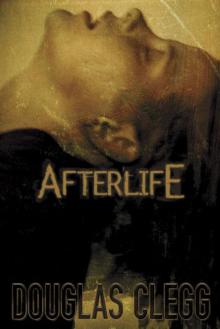 Afterlife
Afterlife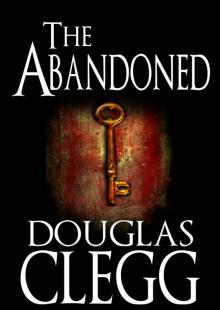 The Abandoned - A Horror Novel (Thriller, Supernatural), #4 of Harrow (The Harrow Haunting Series)
The Abandoned - A Horror Novel (Thriller, Supernatural), #4 of Harrow (The Harrow Haunting Series) The Queen of Wolves
The Queen of Wolves Coming of Age: Three Novellas (Dark Suspense, Gothic Thriller, Supernatural Horror)
Coming of Age: Three Novellas (Dark Suspense, Gothic Thriller, Supernatural Horror) The Hour Before Dark
The Hour Before Dark Isis
Isis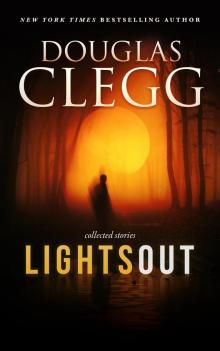 Lights Out
Lights Out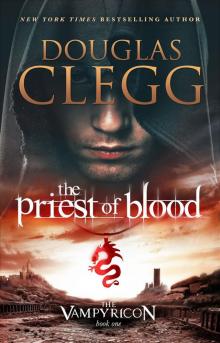 The Priest of Blood
The Priest of Blood Criminally Insane: The Series (Bad Karma, Red Angel, Night Cage Omnibus) (The Criminally Insane Series)
Criminally Insane: The Series (Bad Karma, Red Angel, Night Cage Omnibus) (The Criminally Insane Series) Halloween Candy
Halloween Candy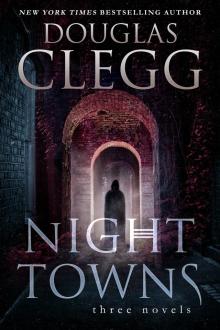 Nights Towns: Three Novels, a Box Set
Nights Towns: Three Novels, a Box Set The Children's Hour - A Novel of Horror (Vampires, Supernatural Thriller)
The Children's Hour - A Novel of Horror (Vampires, Supernatural Thriller)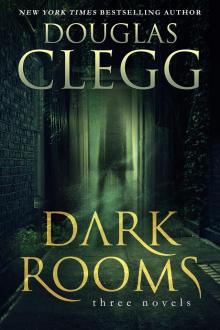 Dark Rooms: Three Novels
Dark Rooms: Three Novels![[Criminally Insane 01.0] Bad Karma Read online](http://i1.bookreadfree.com/i2/04/10/criminally_insane_01_0_bad_karma_preview.jpg) [Criminally Insane 01.0] Bad Karma
[Criminally Insane 01.0] Bad Karma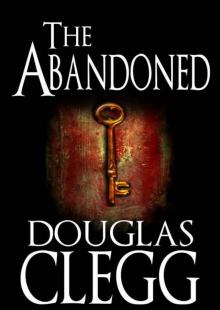 The Abandoned - A Horror Novel (Horror, Thriller, Supernatural) (The Harrow Haunting Series)
The Abandoned - A Horror Novel (Horror, Thriller, Supernatural) (The Harrow Haunting Series) Halloween Chillers: A Box Set of Three Books of Horror & Suspense
Halloween Chillers: A Box Set of Three Books of Horror & Suspense